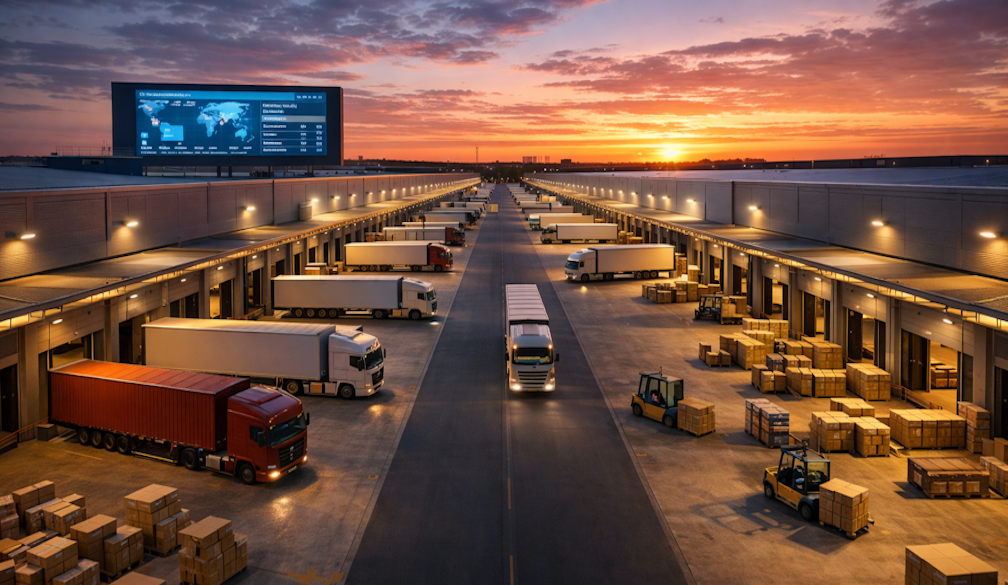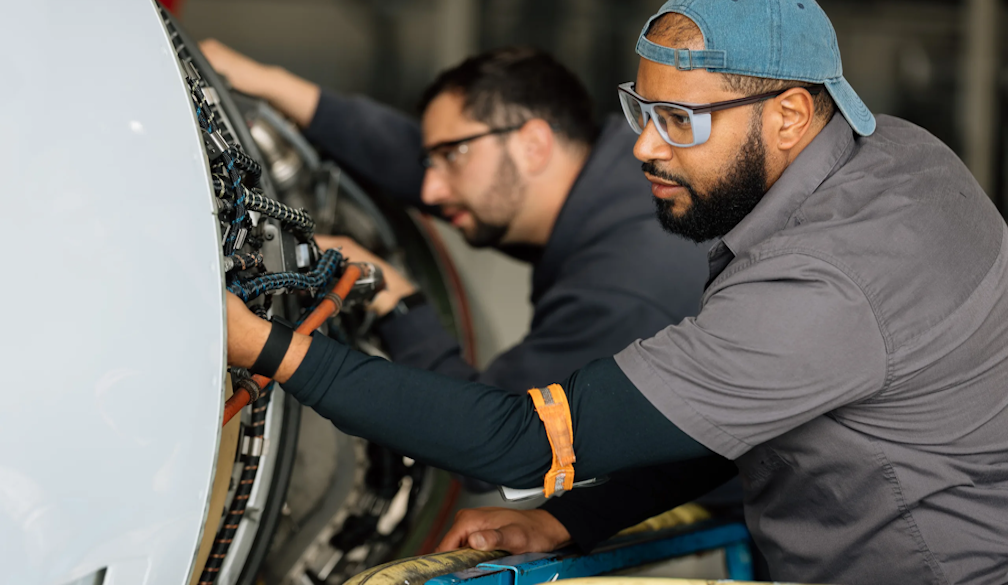Sustainable Business Practices in Ireland: How to Align Profit with Purpose

The Importance of Aligning Profit with Purpose
In today's rapidly evolving business landscape, the concept of sustainability has become increasingly crucial. Companies are recognizing that long-term success is not solely defined by financial performance, but by their ability to balance profit with purpose. This shift in mindset is particularly evident in Ireland, where businesses across various sectors are embracing sustainable practices as a means to drive growth, enhance their reputation, and positively impact the environment and society.
Sustainable business practices go beyond the pursuit of profits; they encompass a holistic approach that considers the long-term consequences of a company's operations. This includes responsible resource management, ethical decision-making, and a genuine commitment to social and environmental well-being. By aligning profit with purpose, businesses in Ireland are not only contributing to a more sustainable future but also positioning themselves for long-term success.
The benefits of sustainable business practices are manifold. Consumers, particularly the younger generations, are becoming increasingly conscious of their purchasing decisions, favouring companies that align with their values. Moreover, sustainable practices can lead to cost savings, enhanced brand reputation, and the ability to attract and retain top talent. In a world where environmental and social issues are at the forefront of public discourse, businesses that embrace sustainability are poised to thrive in the years to come.
Benefits of Sustainable Business Practices
Adopting sustainable business practices can bring a multitude of benefits to companies in Ireland. One of the most significant advantages is the potential for cost savings. By implementing eco-friendly initiatives, such as energy-efficient technologies, waste reduction, and recycling programs, businesses can significantly reduce their operational expenses. This not only improves the bottom line but also demonstrates a commitment to responsible resource management, which can resonate with environmentally-conscious consumers.
In addition to cost savings, sustainable business practices can enhance a company's reputation and brand image. Consumers, particularly millennials and Gen Z, are increasingly drawn to brands that prioritise social and environmental responsibility. By showcasing their commitment to sustainability, businesses in Ireland can differentiate themselves from their competitors and build a loyal customer base that aligns with their values. This, in turn, can lead to increased market share, brand loyalty, and long-term profitability.
Another key benefit of sustainable business practices is the ability to attract and retain top talent. Employees, especially the younger generations, are increasingly seeking out employers that share their values and commitment to sustainability. By implementing eco-friendly initiatives, offering green benefits, and fostering a culture of environmental stewardship, companies in Ireland can position themselves as desirable workplaces, giving them a competitive edge in this market. This can lead to higher employee satisfaction, reduced turnover, and a more engaged and productive workforce.
Sustainable Business Practices in Ireland - Current Landscape and Trends
Ireland has been at the forefront of the sustainable business movement, with a growing number of companies across various sectors embracing eco-friendly initiatives and aligning their operations with the principles of sustainability. This shift is driven by a combination of consumer demand, government policies, and a growing recognition of the long-term benefits of sustainable practices.
One of the key trends in the Irish sustainable business landscape is the increasing adoption of renewable energy sources. Many companies, ranging from multinational corporations to small and medium-sized enterprises, are investing in solar panels, wind turbines, and other renewable energy solutions to power their operations. This not only reduces their carbon footprint but also insulates them from the volatility of fossil fuel prices, leading to long-term cost savings.
Another prominent trend is the focus on sustainable supply chain management. Businesses in Ireland are scrutinizing their supply chains to ensure that their sourcing and distribution practices are environmentally and socially responsible. This includes working with suppliers that adhere to ethical practices, minimizing the carbon footprint of transportation, and implementing circular economy principles to reduce waste and promote the reuse of materials.
The Sustainable Energy Authority of Ireland (SEAI), which offers grants and tax incentives to businesses that invest in energy-efficient technologies and renewable energy solutions. This authority not only benefits the companies themselves but also contributes to a greener and more sustainable future for all. If you operate a fleet of vehicles and you want to learn more about how Radius, a leading telematics provider, is contributing to this cause, be sure to visit their website at https://www.radius.com/en-ie/.
Implementing Sustainable Practices in Your Business
Incorporating sustainable practices into your business model can seem like a daunting task, but it is a journey worth undertaking. The first step is to conduct a comprehensive audit of your current operations, identifying areas where you can improve your environmental and social impact. This may involve evaluating your energy consumption, waste management, supply chain, and overall business practices.
Once you have a clear understanding of your company's sustainability footprint, you can begin to develop a strategic plan to address the identified areas of improvement. This may involve setting specific goals and targets, such as reducing carbon emissions, increasing the use of renewable energy, or improving waste diversion rates. It's important to ensure that these goals are measurable, achievable, and aligned with your overall business objectives.
Engaging your employees in the sustainability journey is crucial for the successful implementation of sustainable practices. Encourage your team to participate in the decision-making process, provide training and resources, and foster a culture of environmental stewardship. By empowering your employees to contribute to the sustainability efforts, you can create a sense of ownership and drive meaningful change within your organisation.
Another key aspect of implementing sustainable practices is effective communication and stakeholder engagement. Regularly share your sustainability initiatives and progress with your customers, suppliers, and the broader community. This not only demonstrates your commitment to sustainability but also helps to build trust and strengthen your brand reputation. Consider seeking third-party certifications or joining sustainability-focused industry associations to further validate your efforts and enhance your credibility.
Green Certifications and Standards in Ireland
In Ireland, there are several green certifications and standards that businesses can adopt to demonstrate their commitment to sustainability. These certifications provide a framework for companies to measure, manage, and improve their environmental and social performance, while also enhancing their credibility and visibility in the market.
One of the most well-known certifications in Ireland is the Business Working Responsibly Mark, awarded by Business in the Community Ireland (BITCI). This certification recognises companies that have integrated responsible and sustainable practices into their operations, covering areas such as governance, workplace, marketplace, and community engagement.
Another popular certification is the ISO 14001 Environmental Management System, which helps organisations to establish and maintain an effective environmental management system. This international standard provides a structured approach to identifying, managing, and continuously improving a company's environmental impact.
The Sustainable Energy Authority of Ireland (SEAI) also offers a range of energy-related certifications, including the SEAI Energy Efficient Business Award and the SEAI Energy Management Standard (ISO 50001). These certifications acknowledge businesses that have implemented effective energy management practices and achieved significant energy savings.
By pursuing these green certifications and standards, businesses in Ireland can demonstrate their commitment to sustainability, differentiate themselves from competitors, and access new market opportunities. These certifications can also help to attract eco-conscious consumers, investors, and employees, further strengthening the company's position in the sustainable business landscape.
Government Incentives and Support for Sustainable Businesses
The Irish government has recognised the importance of sustainable business practices and has implemented a range of incentives and support mechanisms to encourage companies to embrace eco-friendly initiatives. These initiatives are designed to help businesses overcome the financial and operational barriers associated with transitioning to more sustainable practices.
One of the key government initiatives is the Sustainable Energy Authority of Ireland (SEAI) grant program, which provides financial assistance to businesses that invest in energy-efficient technologies and renewable energy solutions. These grants can cover a significant portion of the upfront costs, making it more feasible for companies to implement sustainable upgrades to their operations.
In addition to financial incentives, the Irish government also offers various support services and resources to help businesses navigate the sustainable business landscape. This includes the provision of technical and advisory services, as well as the facilitation of industry-specific networking and knowledge-sharing opportunities. By fostering a collaborative environment, the government aims to inspire and empower businesses to adopt sustainable practices.
Furthermore, the Irish government has introduced policy frameworks and regulatory measures to drive the transition towards sustainability. For example, the Climate Action Plan 2021 sets ambitious targets for reducing greenhouse gas emissions, which has implications for businesses across various sectors. These policy initiatives create a supportive environment for sustainable business practices, ensuring that companies are both incentivised and required to prioritise environmental and social responsibility.
Challenges and Obstacles in Adopting Sustainable Practices
While the benefits of sustainable business practices are well-documented, the journey towards sustainability is not without its challenges. Businesses in Ireland may face a range of obstacles that can hinder the successful implementation of eco-friendly initiatives.
One of the primary challenges is the upfront cost associated with sustainable investments, such as the installation of renewable energy systems or the implementation of waste reduction programs. For some companies, especially small and medium-sized enterprises, the initial financial outlay can be a significant barrier, even with the availability of government incentives and grants.
Another challenge is the complexity of integrating sustainable practices into existing business operations. Transitioning to a more sustainable model may require significant changes in processes, supply chain management, and employee mindsets, which can be time-consuming and disruptive. Effective change management and employee engagement are crucial to overcoming this obstacle.
Additionally, businesses may face a lack of awareness or understanding among their stakeholders, including customers, suppliers, and investors, about the importance of sustainable practices. This can make it challenging to build support and momentum for sustainability initiatives, as well as to communicate the value proposition effectively.
Despite these challenges, businesses in Ireland are finding innovative ways to overcome the obstacles and embrace sustainable practices. By leveraging government support, collaborating with industry peers, and continuously educating and engaging their stakeholders, companies can navigate the path towards a more sustainable future.
Conclusion - The Future of Sustainable Business Practices in Ireland
As we look to the future, it is clear that sustainable business practices will play an increasingly crucial role in shaping the success and resilience of companies in Ireland. The growing consumer demand for eco-friendly products and services, combined with the pressing need to address environmental and social challenges, will continue to drive the sustainable business movement forward.
Businesses that embrace sustainability and align their profit with purpose will be well-positioned to thrive in the years to come. By implementing sustainable practices, companies can not only reduce their environmental impact but also enhance their brand reputation, attract and retain top talent, and unlock new market opportunities. The government's ongoing support, through incentives, policies, and collaborative initiatives, will further catalyse this transition towards a more sustainable business landscape in Ireland.
As we have explored in this article, the journey towards sustainability is not without its challenges, but the potential rewards are significant. By sharing best practices, collaborating with industry peers, and continuously innovating, businesses in Ireland can lead the way in demonstrating how profit and purpose can coexist in a sustainable and prosperous future.
The time to act is now. By embracing sustainable business practices, companies in Ireland can not only contribute to a greener, more equitable world but also secure their own long-term success and resilience. As we move forward, let us be inspired by the examples of sustainable businesses that have already paved the way, and let us work together to create a more sustainable and prosperous future for all.







